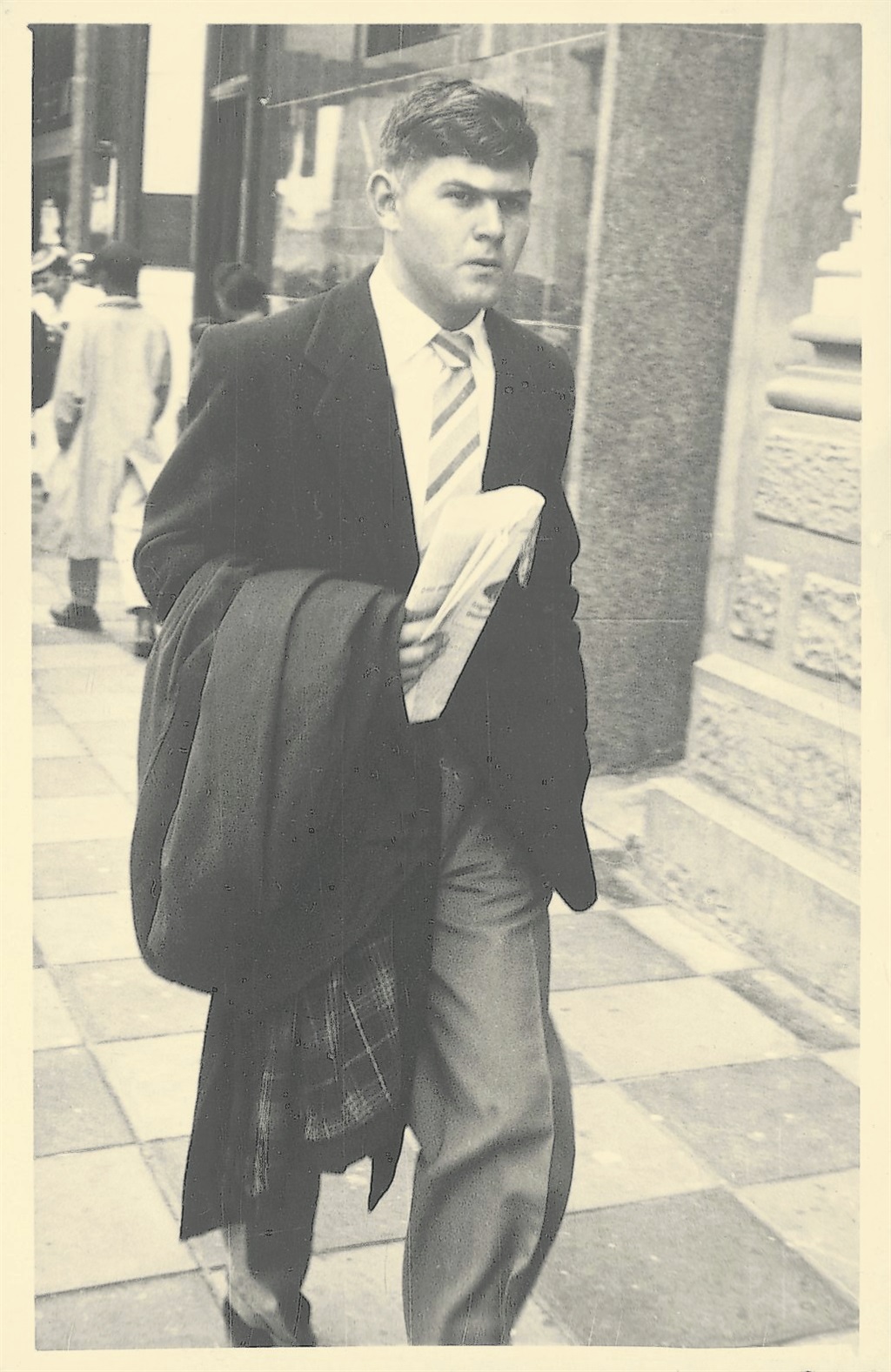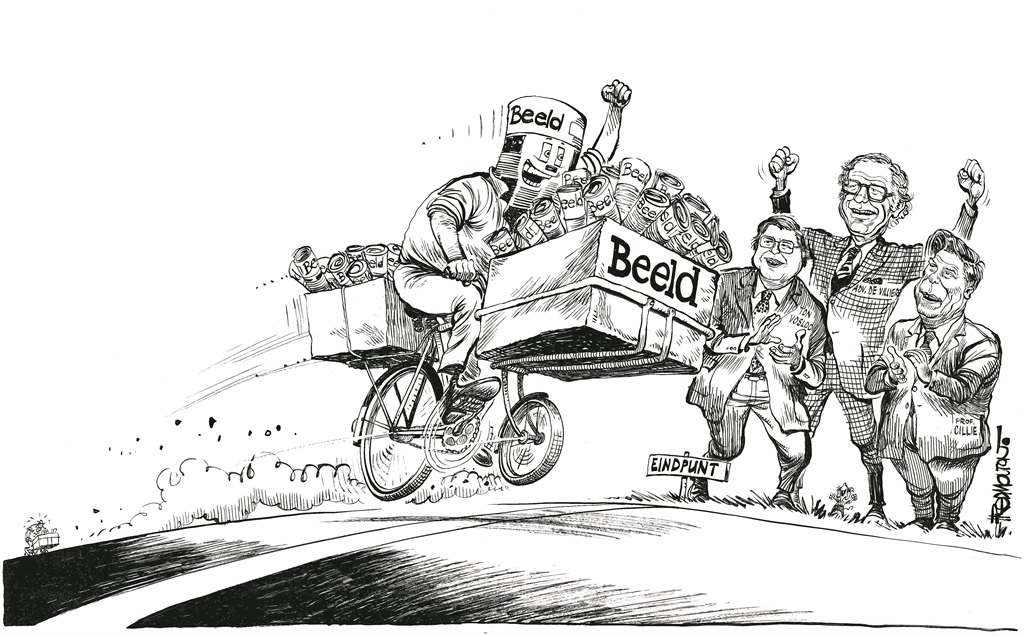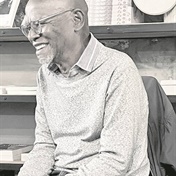
In his newly published memoir,Ton Vosloo traces his years in the media spotlight from sports journalist to editor of Beeld to managing director, chief executive and then board chair of Naspers.
In this extract, he writes about his particular relationship with pioneering editor Percy Qoboza
Across Boundaries: A life in the media at a time of change by Ton Vosloo
Jonathan Ball Publishers
288 pages
R275
‘Show me a contented editor and I’ll show you a bad newspaper,” Arthur Christiansen, former editor of one of the largest British newspapers, the Daily Express, once said.
I nailed this adage to my mast as editor and also as chief executive. As chief executive, I did not indulge in self-satisfaction if I could help it.
My leadership had been formed in my journalistic years. It was a huge responsibility, but also exciting, to advance from general news reporting to sport, and to be an observer and reporter from 1958 to 1970 in the scrum of our politics, the House of Assembly.
Those parliamentary years were worth their weight in gold. Besides getting to know political leaders, I was also afforded a helicopter view of national affairs as they unfolded.
It was when I became editor of the young daily Beeld in June 1977 that I first tasted the full meaning of the loneliness of leadership.
You and you alone had to take the reins, lead the editorial staff and forge your colleagues into a cohesive team.
Moreover, in the prevailing circumstances, you had to coach them to not only outperform the group of rival papers in the market, but also crush them politically.
I introduced my first team talk with a joke: a zoo crossed a tiger with a parrot, I said. Beeld went to investigate, and the reporter asked the zookeeper: “What do you call this thing?” The zookeeper replied: “I don’t know, but when it talks, we listen.”
I continued: “I hope I’m not the product of such cross-breeding, but I’m afraid I’ll have to be listened to when I talk.”
These were some of the points I made:
. We’re going to tighten the screws that need to be tightened.
. Quite a few shibboleths will go out the window.
. Beeld will be a lively, fresh, sparkling paper that reflects its environment, that speaks with authority and that, in the interest of its readers, will never back down or throw in the towel – a paper with which the public would like to associate itself because it is decent.
. We’ll hit the big news story hard. Focusing our energies on the top story of the day will be our great offensive weapon. (This was indeed what Beeld did.)
With regard to leadership, I promised the editorial staff that, in the production process, I would be a visible, contactable and accessible editor.
This plan was executed successfully. By the end of 1982, Beeld was the Afrikaans market leader in the Transvaal, and its dominance led to the demise of all four of our rival Afrikaans dailies in 1983.
As editor, I wrote a daily memo to the editorial staff. One such memo, on a pink slip of paper and which is still in my possession, made the following point: “What gives Beeld a ‘gees’, and progressively so, is the local letters that are now beginning to arrive. Today’s letters page is from the heartland of our readership area … we are getting under the skins of our people. We are now three months away from our third birthday. Maybe we are only now starting to identify truly with our environment … this holds enormous potential.”
I found the increasing number of letters from the local community heartening and valuable indeed.
A newspaper gets to know its market in this way, and can deliver a product that is tailored to its readership.
Unfortunately, leadership also meant having to rebuke my own seniors at times.
In June 1977, I received a telex from our office manager in Pretoria, Piet Botma. In a column about Nasionale Pers, Dr Albert Hertzog’s far-right paper Die Afrikaner had referred to an article in Beeld.
The article was about a couple who had been attacked while buying bananas near the Kruger National Park.
According to Die Afrikaner, readers could not conclude from Beeld’s article that the attackers had been black men; apparently, Beeld had referred only to armed robbers and men.
Botma added: “The criticism may be valid. I think in our society and political situation it is important to talk about black men.”
I replied: “We have decided to avoid the issue of colour in the introduction to articles. Beeld wrote that the tracks of the attackers had led to a nearby black village. Surely this indicated who the thugs were.”
My modus operandi as newspaper editor was also accompanied by clashes with the approach of some leadership figures in the National Party (NP).
My decision as editor of Beeld to exchange columns and editorials with The World editor Percy Qoboza, for example, did not find favour everywhere.
Eventually, we had to look on as Percy’s paper was banned and he was detained without trial for five months on then justice minister Jimmy Kruger’s instructions.
It was a novelty for an Afrikaans paper to exchange articles with a paper aimed at the black community.
Die Burger and the Cape Times exchanged editorials in the 1970s, and Die Burger also exchanged comment articles with the Dutch daily Trouw in those years.
But I specifically wanted white and black readers to hear one another’s voices.
And they had to discover one another on an equal footing in comparable articles that appeared in one another’s newspapers. I sought to break through the mutual isolation of newspaper apartheid.
Looking back today, the amount of suspicion, bigotry and harshness with which the authorities would sometimes respond to articles by black journalists was astounding.
Equally astounding was how much daring it required of me to seek to bridge the distance Beeld was supposed to maintain between itself and a paper such as The World in terms of government policy.
Then prime minister John Vorster was implacable in his condemnation of Qoboza.
Qoboza was a newspaper editor and fellow South African who was entitled to a political discussion or debate in the pages of the papers the two of us had to lead.
He knew his market, and knew that the genie would escape from the bottle once the NP government started learning that the plug could not be kept in permanently.
Sadly, he died in 1988 at only 50 years old and on the brink of the new dispensation for which he had fought. Qoboza had to take many risks, and his lifestyle was unhealthy. The stress of his editorship in the seething cauldron of unrest and revolt in the 1970s and 1980s took its toll.
His family invited me to deliver a tribute at his funeral service in Soweto’s Regina Mundi Catholic Church.
Among other things, I said that, with the passing of Percy Qoboza, South African journalism had lost one of its bravest personalities.
During his career, Qoboza was subjected to two gruelling tests in particular. The first was the dramatic shutdown of The World in 1976 and his five-month detention without trial.
His courageous leadership led to this censorship and incarceration. History has proved him right, and today his imprisonment redounds to his eternal credit.
The other test came when Nasionale Pers acquired Drum Publications in 1984. All of a sudden, Percy’s paper was owned by Afrikaner nationalists.
He had to think carefully about his standing in his own community and his role within the greater South African dispensation, with all its conflicting tendencies and ruthlessness.
Percy accepted the exceptionally tough challenge wholeheartedly. At his first meeting with us, he broke the ice by remarking: “Don’t expect us to wear safari suits and grey shoes.”




 Publications
Publications
 Partners
Partners











